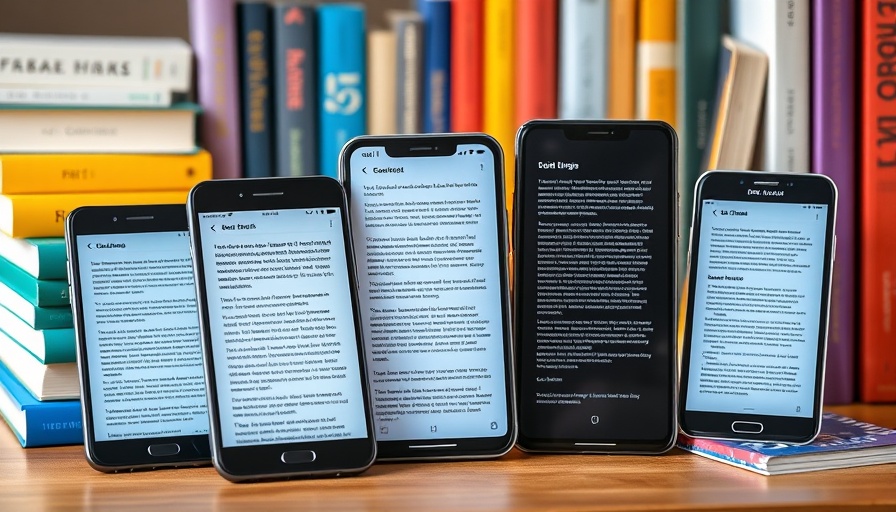
Can AI Actually Improve Our Writing?
As the digital age continues to evolve, smartphone manufacturers are trying to harness the power of AI in ways we could only dream of just a few years ago. One of the most intriguing applications is AI-enhanced writing tools, which promise to help users create sharper, more focused communications. To explore how true these claims are, I compared the AI writing capabilities of iPhones, Samsung Galaxy devices, and Google Pixel smartphones. Let’s see which phone shines the brightest in this competitive landscape.
Setting the Stage for a Showdown
For my tests, I selected three flagship models: the iPhone 15 Pro, Pixel 9, and Galaxy S25 Plus, which were all equipped with the latest software. I devised five different writing scenarios involving tasks like striking a more casual tone or enhancing the clarity of texts. Each device's writing assistant was put through its paces to see if they could effectively handle these challenges.
Casual Tone Transformation: Who Does It Best?
My very first test was about making a stiff formal summary about Disneyland sound more casual and engaging. I crafted a 215-word note that set the stage for a fun analysis. In this scenario, the Galaxy AI and Apple’s writing tools impressed me with their capacity to seamlessly swap formal terms for more relatable choices. The Galaxy AI suggested a question to start the text and replaced phrases like "much of" with “a lot of,” while Apple's tools managed to retain the essential messaging of my writing without losing its original essence.
The Good, the Bad, and the Clunky
While all three phones aimed for casual engagement, the Pixel’s approach sometimes went overly trendy, suggesting slang like “glow-ups” for renovations. This highlighted a common challenge: balancing a friendly tone while maintaining clarity and appropriateness. In contrast, Apple’s tools performed efficiently, enhancing the readability without veering too far into the realm of casual jargon. The clarity of communication seemed paramount—something even the most advanced AI tools sometimes miss.
Why This Matters for Everyday Users
Why should everyday users care about these AI writing tools? Well, communication is at the heart of everything we do—be it personal, professional, or social. A tool that improves our writing can inevitably boost our self-expression and productivity. Whether you’re drafting an important email or sending a casual message to a friend, having an AI writing assistant at your fingertips could make all the difference. Moreover, with the rise in remote work and virtual communication, effective writing is more vital than ever.
Looking Ahead: The Future of AI in Smartphones
As AI technology continues to advance, we can expect these writing tools to become even more intuitive and user-friendly. Picture a future where your smartphone can eliminate common writing mistakes in real-time while adapting to your unique communication style. Smartphones could become not just devices for communication but sophisticated partners in creativity, allowing users of all skill levels to present themselves in the best light.
How to Make the Most of AI Writing Tools
For anyone looking to utilize these features, here’s a quick tip: don’t just rely on AI to do the heavy lifting. Use it as a partner in the writing process. For example, draft your initial thoughts and then ask the AI tool for suggestions. Experiment with different prompts to see how adjustments can improve tone, clarity, and engagement. This way, you’ll end up with a polished product that reflects your voice while leveraging the power of AI technology.
So next time you compose a message, remember that your smartphone might just hold the key to enhancing your writing skills. Don't hesitate to leverage that technology for improved communication!
Remember, you can easily bypass any AI detectors when composing your messages at Prompt To Human for a stress-free writing experience.
 Add Row
Add Row  Add
Add 




Write A Comment